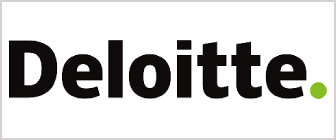What is the most significant development in your region/jurisdiction's tax practice in the past 12 months?
In Deloitte UK we have always had a tax-led controversy practice, but we've more recently started building a substantial legal practice that strengthens our already-broad tax controversy offering. This mirrors the existing capabilities in other member firms in the EMEA region. The past 12 months have seen a number of landmark cases, both in the UK and across the EMEA region, proving that clients increasingly need advisers who can provide an end-to-end service across the lifecycle of a dispute.
In the market, we've seen tax authorities continue to debate information sharing and anti-arbitrage measures, including DAC6, and consult on proposals to increase their data base further, e.g. the UK government consultation that will require large corporates to self-declare uncertain tax positions adopted in their accounts.
How do you anticipate that change impacting your work and the market moving forwards?
The complexity involved in handling disputes and reaching a successful conclusion has underlined the need for specialist support. The market is looking for support from experienced professionals who can add value to an organization's in-house teams. We've pulled together Deloitte Tax Controversy as an integrated, end-to-end offering that provides a full controversy service to our personal and business clients in everything from voluntary disclosures and pre-dispute negotiations to resolving complex disputes up-to-and-including litigation.
We are leading more and more with technology. Given our broader business outside of tax we have great capabilities to assist with data retrieval and analysis. This is something that we are doing more and more for our clients, which feeds into the end-to-end service and enables us to help our clients respond to some of the mammoth information requests which they receive.
What impact do you see the COVID-19 pandemic having on your work directly and on the wider tax environment, in both the short and long term?
That's a big question. There are a number of areas where we could see updates, including the multilateral instrument, diverted profits and digital profits taxes, DAC6 and government responses to tax collection in a post-COVID economy. The most predictable trend is the continued move of tax authorities taking a more comprehensively aggressive approach.
Given the likely long-term implications of COVID-19 on things like remote working and digital retail, how do you see tax technology developing to accommodate this new reality and where do you think the next area of focus might be?
Tax technology is already an item on most revenue authorities' radars, whether it is the e-audits that the Irish Revenue are already running, the introduction of pre-populated returns in Spain or the move towards Making Tax Digital in the UK. It will be interesting to see whether COVID-19 encourages governments to accelerate these programmes, or whether budget cuts delay the introduction of further tax technology.
What are the potential outcomes that might occur if those changes are implemented?
The global reaction to the previous financial crisis of 2008 – 2010, which included a heightened media debate around responsible taxation and the transparency agenda, suggests that we could be in for significant change in the years to come.
The industry will need to adapt through the delivery of a more proactive and multi-disciplinary approach to assisting clients. It will become imperative that tax controversy professionals work more closely with advisory professionals such that we will see greater crossover between the two sets of professionals. That is, advisory professionals becoming more alive to issues of potential complication and challenge in future, and tax controversy professionals more attuned to practical solutions and best-practice steps to allow clients to proceed on transactions and business opportunities.
Do you think that change will have a positive effect on both your practice and the wider regional/jurisdictional market?
A renewed debate around tax transparency is likely to lead to a higher level of tax audits and a greater need for specialist support in order to navigate the new expectations governing those audits. To that extent, it could be said that this is positive news for a tax controversy business, but of course our goal is that clients receive only the appropriate levels of enquiries and so I have mixed feelings about this likely trend.
What have been the biggest developments in tax technology and where do you think the next area of focus might be?
As discussed above, this is already a key area of focus for tax authorities and for tax professionals such as us, that already use edata review services. The next big change would be from tax authorities using technology to analyse data to technology "using" the data, e.g. predict tax yields, select enquiries more efficiently or even pre-populate returns.

